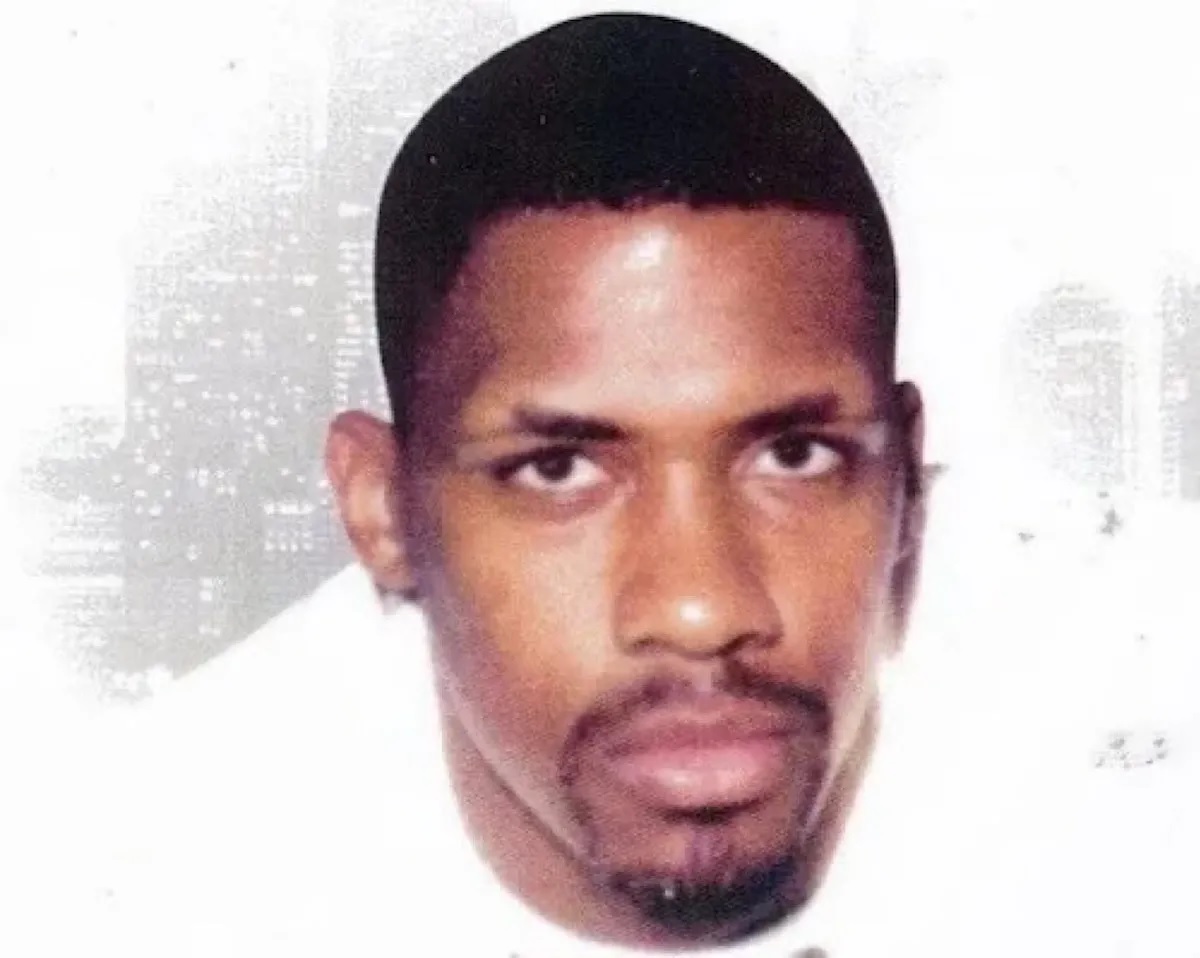
**FILE** Rayful Edmond III (Courtesy of NBC Washington)
Rayful Edmond III, whose name became synonymous with Washington, D.C.’s crack cocaine epidemic and its deadly consequences, died suddenly Tuesday at the age of 60.
Edmond, who spent more years in prison than out, was found dead at a Florida facility akin to a halfway house, according to the U.S. Bureau of Prisons. No cause of death has been disclosed.
Edmond’s influence over D.C.’s drug trade in the 1980s was unparalleled. Authorities estimated that his organization smuggled up to 1,700 pounds of cocaine into the city each month, generating $2 million weekly. His operation fueled a surge in violence that tore through the city’s Black communities, leaving devastation and loss in its wake.
With his flashy lifestyle — custom silk suits, diamond jewelry, and courtside seats at Georgetown Hoyas games — Edmond commanded both fear and fascination. Prosecutors called him the “Babe Ruth of crack cocaine” for his ability to amass wealth and control through a network of loyal dealers. Even after his 1989 arrest and 1990 life sentence, Edmond’s power did not wane. From behind bars, he continued to orchestrate drug deals through coded telephone calls, exposing flaws in prison monitoring systems.
“Edmond says just because he is locked up doesn’t mean he can’t get what he needs,” noted a 1990 report from Lewisburg’s Special Investigative Services (SIS).
Yet despite multiple warnings, Edmond’s activities persisted. An FBI agent recalled, “At the time, Rayful Edmond was not perceived by me to be any significant criminal individual. … He was simply one of many drug dealers.”
In the late 1980s, Edmond’s drug organization controlled as much as 30% of the cocaine market in Washington, D.C. His operation was linked to at least 30 homicides, underscoring the violent grip he maintained on the city. Court records reveal that he began living lavishly at 22, taking trips to Las Vegas, Georgetown boutiques, and Rodeo Drive in Beverly Hills. He was known for giving out $100 bills to children in his neighborhood and covering expenses for locals — acts that secured community loyalty.
His notoriety extended beyond the streets. Georgetown basketball coach John Thompson famously confronted Edmond and demanded he stay away from his players.
Edmond’s life and influence were so pervasive they were referenced in pop culture. Jay-Z rapped in “Can I Live”: “Illin’ for the revenue, Rayful Edmond-like.” Nas mentioned Edmond in “Get Down”: “This is Rayful’s aim, and he got the streets sewed.” Even Kendrick Lamar referenced him, acknowledging Edmond’s lasting imprint on the culture of hustling and ambition.
After his conviction, Edmond was incarcerated in high-security federal facilities, where his influence continued. Despite being under supervision at USP Lewisburg in the early 1990s, he arranged drug deals via prison telephones, connecting with Colombian suppliers and fellow inmates like Freddy Aguilera and Nelson Garcia.
“You should see my new girlfriend. She is six feet tall. She lives down where we used to live on 22nd Street,” Edmond once said in a coded call — a phrase that investigators later determined referred to six kilos of cocaine for $22,000.
The Justice Department’s Office of Inspector General found significant lapses in prison oversight, allowing Edmond and others to exploit the system. Federal agents discovered Edmond was conducting three-way calls and coded conversations, arranging cocaine shipments worth millions.
“More than half of inmates’ telephone use is for ‘doing wrong,’ not for staying in contact with their families,” Edmond told investigators during a 1998 interview.
An FBI investigation in 1991 revealed that Edmond’s network extended internationally, linking him to Medellín cartel operatives. Even with mounting evidence, the Bureau of Prisons (BOP) struggled to restrict his communications effectively. The OIG report criticized the BOP for failing to act decisively despite knowing Edmond’s activities.
Edmond’s cooperation with law enforcement eventually led to numerous indictments, including those of Aguilera and Garcia. His decision to inform on fellow traffickers earned him a significant sentence reduction in 2021. By that time, Edmond had spent over 30 years in prison.
In August 2023, the Bureau of Prisons transferred Edmond to community confinement under the supervision of the Nashville Residential Reentry Management Office. Details about his exact location were kept confidential. His sudden death comes just months before he was due to walk free.
An autopsy is pending, and authorities have found no immediate signs of foul play.
This story originally appeared in the Washington Informer
The post The death of Rayful Edmond III: Kingpin who shaped D.C.’s dark drug war appeared first on New Pittsburgh Courier.

